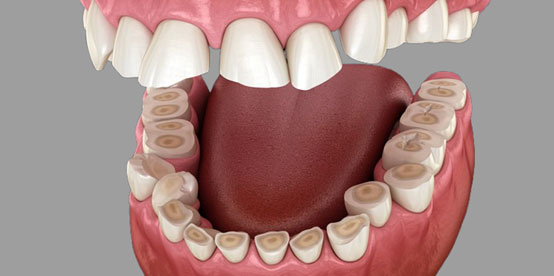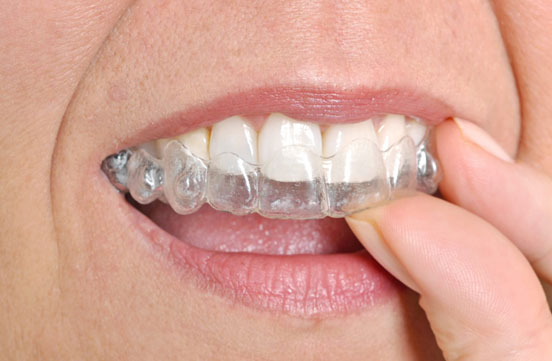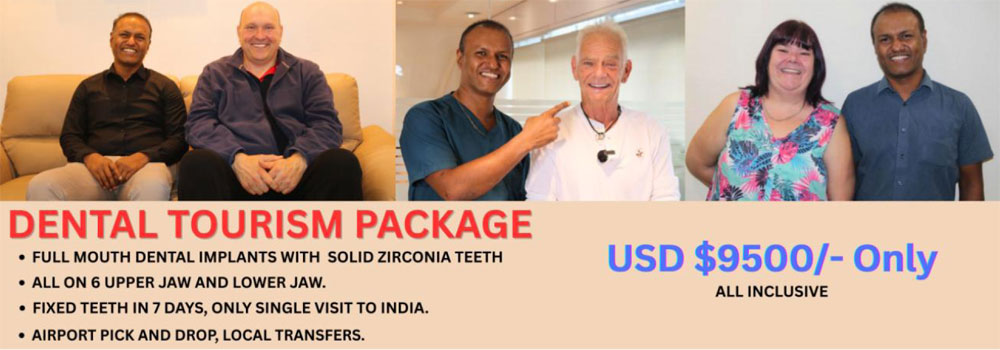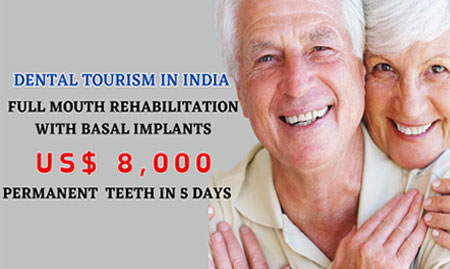
Dr. K Sharada Reddy, Author
Senior Dentist & Full Mouth Rehabilitation Expert
Stress isn’t just a mental burden, it’s a powerful force that can silently sabotage your oral health. In our increasingly fast-paced and demanding lives, stress has become a silent epidemic, one that not only affects mental and physical well-being but also wreaks havoc on oral health. One of the most common and damaging manifestations of stress is teeth grinding, or bruxism.

Often occurring during sleep, bruxism causes excessive clenching or grinding of teeth, wearing down enamel, causing sensitivity, and leading to cracked or chipped teeth. It also puts tremendous pressure on the jaw, contributing to temporo mandibular joint disorders (TMD/TMJ). Patients may experience persistent jaw pain, clicking or popping sounds, difficulty in opening the mouth, and frequent headaches, especially upon waking. If left untreated, these issues can severely impair oral function and quality of life.
Another dangerous but often overlooked consequence of chronic stress is gum disease (periodontal issues). Stress weakens the immune system, making it harder for your body to fight off gum infections. This can result in red, swollen, and bleeding gums, and if not treated promptly, may progress to tooth loss.
Canker sores and mouth ulcers are also common during high-stress periods. These small but painful lesions inside the mouth can interfere with eating and speaking, often lingering longer when stress levels remain high.
Dry mouth (xerostomia) is yet another frequent side effect, especially among individuals taking medications like antidepressants or anti-anxiety drugs. Saliva plays a crucial role in maintaining oral health, when its production is reduced, it increases the risk of tooth decay, bad breath, and gum disease. Additionally, stress can disrupt regular routines, leading many to neglect their oral hygiene. Skipping brushing, flossing, or dental visits during these times results in increased plaque buildup, cavities, and exacerbation of existing dental problems.
Stress also influences behavior, prompting many to indulge in poor dietary choices. Craving sugary snacks, frequent snacking, or relying on alcohol and tobacco are all common coping mechanisms. Unfortunately, these habits significantly raise the risk of enamel erosion, cavities, and gum deterioration.
If you’re experiencing any signs of bruxism, jaw pain, or unexplained dental damage, don’t ignore the warning signs. Reach out to LBR Dental & Implant Center the most trusted implant clinic in India for compassionate, cutting-edge care that restores your oral health and your peace of mind.
How to Protect Your Teeth from Stress-Related Damage
To counter these effects, it’s vital to adopt protective measures. Wearing a night guard can shield your teeth from the damage caused by grinding. Practicing relaxation techniques such as meditation, yoga, and deep breathing can help manage stress and reduce its oral consequences. Maintaining a consistent oral hygiene routine, staying hydrated, and avoiding sugary or acidic foods and beverages are equally essential. Most importantly, don’t skip your regular dental check-ups, these visits can catch and address stress-related oral issues early.
What many people don’t realize is how destructive bruxism can be. It not only damages the teeth but also contributes to jaw pain, TMJ disorders, gum recession, and even bone loss. For some, the problem becomes so severe that they need full mouth reconstruction with dental implants

The Science Behind Stress-Induced Bruxism
When we’re under emotional strain, our bodies shift into a heightened “fight or flight” mode, triggering a flood of stress hormones like adrenaline and cortisol. This leads to generalized muscle tension and for many people, that tension gets concentrated in the jaw muscles, particularly the masseter and temporalis. The result is subconscious clenching or grinding, which often occurs during sleep but can also persist throughout the day. Research shows a clear link between anxiety, sleep disturbances, perfectionist tendencies, and increased episodes of bruxism. The pressure exerted during night time grinding can be up to six times stronger than normal chewing enough to wear down enamel, crack fillings, and even lead to irreversible joint damage.
It’s Not Just About Teeth: The Broader Impact of Bruxism
While worn or chipped teeth are the most visible signs, the damage from bruxism extends far beyond the enamel. The temporo mandibular joints (TMJs), which connect the lower jaw to the skull, can become inflamed or misaligned due to continuous pressure. This can cause jaw clicking or popping, limited mouth opening, chronic pain near the ears, and even migraines. Overworked jaw and facial muscles can also trigger tightness in the neck and temples, leading to soreness while chewing or speaking. Additionally, persistent grinding can irritate the tooth pulp, potentially leading to nerve damage and the need for root canal therapy. In advanced cases, bruxism can contribute to gum recession, tooth mobility, and bone loss compromising the integrity of the entire oral structure.
Daytime Bruxism: More Common Than You Think
While nighttime bruxism is more often discussed, daytime clenching is surprisingly common, especially during high-focus tasks like driving, working, or using digital devices. Although it typically involves clenching rather than grinding, the long-term effects can be just as harmful.
The Hidden Cost of Stress: How Bruxism Damages More Than Just Teeth
Chronic grinding and clenching exert forces up to six times stronger than normal chewing. Over time, this can:
- Flatten and fracture teeth
- Lead to root canal needs
- Loosen dental work like crowns or fillings
- Cause facial pain, TMJ symptoms, and migraines
- Interrupt sleep, further increasing stress
- Left untreated, stress-related bruxism can result in a dental breakdown, making chewing painful and smiles unsightly.
How to Identify the Signs
Many people aren’t aware they grind or clench until damage is already visible. Key indicators include a sore jaw after focusing or waking up, tooth sensitivity without cavities, flattened or chipped front teeth, notching near the gumline, or indentations along the tongue’s edges. You may also notice recurring morning headaches or a tight feeling near the temples.
How LBR Dental Diagnoses and Manages Bruxism
At LBR Dental & Implant Center, we combine clinical exams, bite analysis, and advanced diagnostic tools to detect early signs of bruxism even before major symptoms occur. We examine enamel wear patterns, microscopic cracks (called craze lines), TMJ tenderness or asymmetry, and signs of occlusal trauma like gum recession.
Management involves a comprehensive two-pronged approach. First, we protect the teeth. Our custom-fitted night guards are precision-made to evenly distribute bite forces, reduce muscle tension, and prevent damage during sleep. For patients with bite imbalance, occlusal adjustments help redirect harmful forces. Second, we address the root cause. Stress reduction strategies such as mindfulness, meditation, yoga, and behavioral training are often recommended. We also teach the “lips together, teeth apart” technique and suggest phone reminders to check jaw tension. In select cases, Botox injections or muscle relaxants may be used to ease overly tense jaw muscles while longer-term stress relief is pursued.
At LBR Dental & Implant Center in Hyderabad, we specialize in diagnosing and treating the full spectrum of stress-induced dental problems, with a particular focus on bruxism and its devastating consequences. From custom-made night guards and TMJ therapy to full-mouth rehabilitation using graftless implant solutions, we offer advanced, minimally invasive treatments tailored to each patient. For those who’ve suffered extensive damage due to years of grinding, our signature CPBCCI™ Protocol and world-class zirconia implant supported restorations offer a permanent solution with fixed teeth delivered in just 5–7 days, even for international patients.
But here’s the good news: you don’t have to spend $50,000 or more in the U.S. or Australia to get your smile and your life back.

Your Smile Deserves Relief
Your mouth is often a mirror of your mental and physical health. Chronic bruxism is not just a bad habit, it’s a physical manifestation of emotional stress that deserves timely attention. Left unchecked, it can create a damaging cycle: stress causes clenching, which leads to pain and tooth damage, which in turn increases stress.




